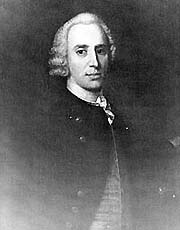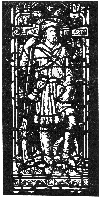
Interpreter
![]()
 |
 |
 |
 |
Interpreters played a key role at treaty gatherings. They were the cultural link between the Iroquois and Colonists.
Every treaty gathering had an official interpreter who worked for the Colonial Governor. In addition, there were any number of other men and women who spoke English, French, Dutch and Iroquois dialects who were unofficial interpreters for their groups.
Despite their importance, interpreters did not always enjoy good reputations. There were two reasons for this:
- Colonial and Iroquois leaders did not trust them because most interpreters made their living from the notoriously fraudulent fur trade.